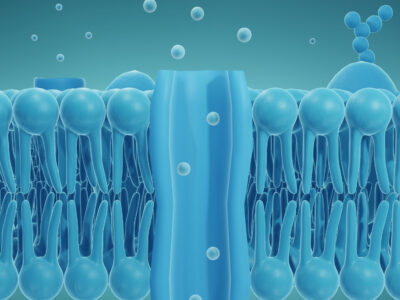Ion transporter research focuses on understanding the structure, function, and regulation of membrane proteins that actively transport ions across cell membranes. Ion transporters play a crucial role in maintaining ion homeostasis, regulating cellular pH, controlling electrical potentials, and facilitating the transport of ions across various tissues and organelles.
Here are some key aspects of ion transporter research:
Transport Mechanisms: Ion transporters employ various mechanisms to move ions across membranes, including primary active transport, secondary active transport, facilitated diffusion, and ion channels. Researchers study the transport mechanisms employed by different ion transporters and investigate their kinetic properties, substrate specificity, and regulation.
Classification and Diversity: Ion transporters encompass a diverse group of membrane proteins with distinct structural and functional characteristics. Researchers classify ion transporters based on their transport mechanism, substrate specificity, and structural features. This classification helps in understanding their roles in different physiological processes and provides insights into their evolutionary relationships.
Structural Biology: Studying the three-dimensional structure of ion transporters is crucial for understanding their function and mechanism of action. Techniques like X-ray crystallography, cryo-electron microscopy (cryo-EM), and nuclear magnetic resonance (NMR) spectroscopy are used to determine the atomic-level structures of ion transporters. Structural studies help in identifying key functional regions, substrate-binding sites, and mechanisms of ion transport.
Functional Characterization: Ion transporter research involves detailed functional characterization of transporters. This includes measuring transport kinetics, substrate affinities, ion selectivity, and determining the stoichiometry of ion transport. Functional studies help elucidate the transport mechanism, regulatory factors, and the physiological significance of ion transporters in specific tissues and cellular processes.
Regulation and Modulation: Ion transporters are subject to various regulatory mechanisms that modulate their activity in response to cellular signals, physiological conditions, or pharmacological agents. Researchers investigate the regulatory factors, signaling pathways, and post-translational modifications that modulate the activity of ion transporters. Understanding their regulation provides insights into the control of ion homeostasis and cellular responses.
Disease Implications: Dysregulation or genetic mutations in ion transporters can lead to various diseases and disorders. Research efforts focus on identifying genetic variations, mutations, and dysfunctions in ion transporters associated with diseases such as cystic fibrosis, hypertension, kidney disorders, and neurological disorders. Investigating the role of ion transporters in disease pathology can lead to the development of targeted therapies and treatment strategies.
Pharmacology and Therapeutic Targeting: Ion transporters serve as potential targets for therapeutic interventions. Researchers explore the development of drugs that modulate ion transporter activity to treat various diseases. Understanding the structural and functional characteristics of ion transporters aids in the design and development of pharmacological agents that selectively modulate their activity.
Ion transporter research is an interdisciplinary field that combines techniques and approaches from molecular biology, biochemistry, biophysics, structural biology, and pharmacology. It contributes to our understanding of fundamental cellular processes, ion homeostasis, and has implications for the development of novel therapeutics targeting ion transporters.
How to Study the Ion Transporters?
As a leading company for Ion channel and transporter research in Aurora for the electrophysiology aspect, we have developed the high throughput screening instrument known as the Aurora’s Ion Channel Reader (ICR). ICR series of instruments combine atomic absorption spectroscopy with a patented micro sampling process to accurately measure ion flux in cell-based screening assays. ICR technology has been widely used for high throughput screening of both voltage-gated and ligand-gated channels as well as ion transporters, and offers high sensitivity, generating accurate drug rank order matching electrophysiology data.
From the past decades, flux-based screening has begun to be applied to studying ion pumps and transporters. Using the principles of atomic absorbance spectroscopy to measure the absolute concentrations of cytosolic and extracellular ions, this technique is one of the only methods capable of obtaining high throughput activity measurements for electro-neutral ion transporters. Aurora’s ICR instruments provide an alternative approach to the ion channel and transporter screening that is independent of, and complementary to, methods that rely on voltage manipulation.
Research applications of the ICR 8000 and ICR 12000 include:
- Voltage-gated potassium channels, including hERG, Kv1.1, Kv1.4, and Kv1.5
- Stretch-activated potassium channels
- Voltage-gated sodium channels including, Nav1.2, Nav1.5, and Nav1.7
- Ligand-gated channels, such as GABAA, P2X, KATP, SKCa, BKCa, and nAChR
- Transporters, including Na/K-ATPase and the Cation-Cl Co-Transporter (CCC)
- Na-K-Cl cotransporter (NKCC)



